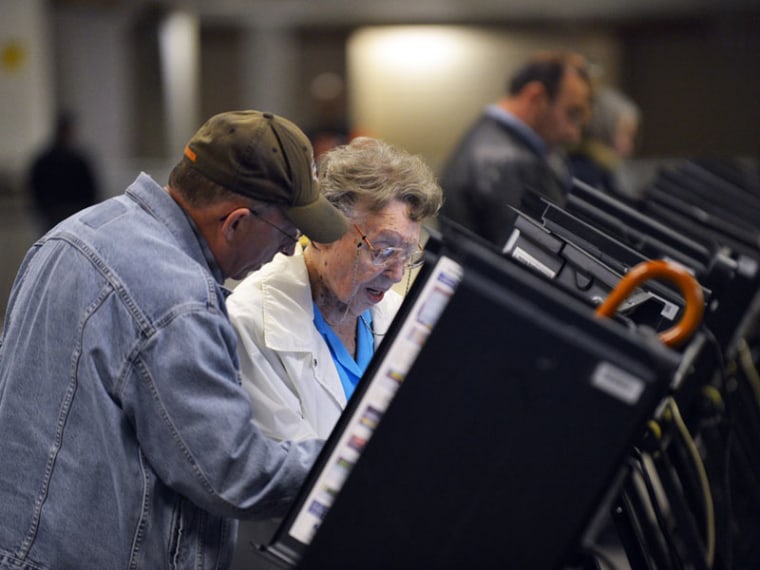"The application for stay presented to Justice Kagan and by her referred to the Court is denied."
This one sentence denial by the Supreme Court Tuesday, which let stand a ruling saying it was unconstitutional for Ohio lawmakers to restrict early in-person voting in the state, may prove to be the most decisive sentence in the presidential campaign.
Here's why: Back in August, Ohio Secretary of State John Husted issued a directive making the Ohio early voting policy uniform across the state. The policy extended early voting hours to 7PM on weekdays for the last two weeks before the election, but banned early voting for Nov. 3rd, 4th, and 5th; the final Saturday, Sunday, and Monday right before the election.
Though this directive was itself a response to claims that the previous county-by-county early-voting policy was "overtly discriminatory," the new policy had critics of its own. Initially, Husted made an exception for military servicemen and women, but the Obama team sued the state on 14th Amendment grounds, claiming that Ohio could not make early voting available to some and not to others.
In late August, a federal court granted an injunction reversing these restrictions, but Husted said he would not comply until an appeals court ruled on the case. Meanwhile, Mitt Romney addressed the matter in a Facebook post, saying, "President Obama’s lawsuit claiming it is unconstitutional for Ohio to allow servicemen and women extended early voting privileges during the state’s early voting period is an outrage."
Romney claimed to be defending the rights of military voters, but this is farcical; the Obama team wasn't suing to curtail military voting rights. They were suing to expand those rights to everyone. And the 6th U.S. Circuit Court of Appeals agreed: they upheld the lower court's injunction and declared the law unconstitutional.
"It isn’t hard to see why the Romney camp opposed an expansion of voting rights," wrote Greg Sargent over at the Washington Post. "More early voting makes it easier for more people to vote—particularly minorities and lower income voters—which will likely help Obama."
A study by the Northeast Ohio Voter Advocates shows that in 2008, "the likelihood that an EIP [early in-person] voter was black was 56.4%, while the probability that an election day or a vote-by-mail voter was black was 25.7%." In fact, many African American voters go together to the polls on the Sunday before the election, taking advantage of the "Souls to the Polls" campaign organized by local priests and ministers to shuttle large groups after church. Remember, that Sunday was banned from early-voting in the new law.
Some estimates say over 90,000 people in Ohio voted early in 2008. In the 2004 presidential election, the outcome came down to just 134,000 votes in Ohio--the proverbial football field's worth, which propelled George W. Bush on to a second term.
The latest polls out of Ohio show Obama with a slight lead, but the competition there is fierce; Democrats and Republicans have spent $54 and $55 million there respectively. The one sentence refusal by the Supreme Court to hear the early-voting appeal is a major victory for the Obama campaign.
It's also a victory for democracy. "At this time in our lives and in this country," said Pastor Rousseau O'Neil, of Rockdale Baptist Church in Cincinnati," we can not afford to go back to a time when so many people were denied the right [to vote], in any form or fashion."
